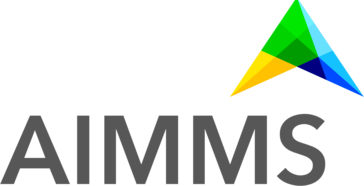AIMMS works with a global ecosystem of consulting companies and resellers to deliver powerful optimization solutions to customers. In this interview, we hear from UniSoma, a provider of advanced analytics solutions with 35 years of experience in the market. Based close to São Paulo in Brazil, UniSoma is AIMMS’ leading partner in Latin America. Together, we have helped companies like Tereos, Petrobras, Arcelor Mittal, Suzano, Marfrig and JBS improve supply chain decision-making. Read the interview with the company’s Technical Director, Volnei dos Santos, to learn more about their role in the Brazilian market and how data science has gone mainstream.
Volnei, can you tell us more about your role at UniSoma?
As Technical Director, I am responsible for choosing the technologies we use to address our customers’ business problems. I also organize our technical teams to best meet customer needs. Our relationships with customers vary. For example, it could be a project-based relationship, where we create a solution or application for customers to address a business problem with a specific model. It could be a long-term relationship, where teams offer dedicated support on a continuous basis, or it could be a relationship focused on providing maintenance and helping the customer’s solution evolve.
What kind of solutions do you provide?
The solutions we provide are mainly in advanced analytics and optimization. We have existed for 35 years. We worked primarily with optimization and statistics for a long time. Recently, we have adopted a broader data-science approach. We work with a range of techniques today: optimization, machine learning, statistics and more.
How have you seen the market evolve over time?
Analytical methods like Operations Research have not been used as heavily in Brazil compared to other countries or markets, but I have seen this evolve since I've been with UniSoma. I have worked here for 15 years. In the beginning, the challenge was introducing an academic subject to people who have never heard about it before. Back in the 80s and 90s, UniSoma was exploring a new market with no competitors. Our projects back in those days were mostly in the steel, pulp and paper, and animal production business. In fact, until the beginning of the last decade, two thirds of our projects focused on these industries. For example, we built statistical models and planning solutions for several pulp and paper companies, including market leaders like Suzano.
From 2010 onwards, we started seeing a broader range of industries using optimization, like manufacturing, beverages, education, and more. We started seeing a lot of use cases in different fields during the last 10-15 years, right around the time I joined the company. Nowadays, at least two thirds of our projects are focused on industries that are relatively new to optimization in the Brazilian market.
Diversification has been the theme of the last decade, especially with the growth of data science. Companies here in Brazil are no strangers to the hype around data science and machine learning. They are curious and looking for partners. Just after this interview, I’m meeting a potential new customer looking for machine learning solutions.
How has the make-up of your team evolved to meet this need?
In the past, 80% of our team was made up of mathematicians, we had a couple of statisticians and a couple of computer scientists. Today, it’s one third mathematicians, 20% statisticians, and a third are computer scientists. Diversity has grown internally as it has with the market.
How many of them work with AIMMS on a regular basis?
Currently, 50 people work at UniSoma. Most are technical staff. I would say that almost half of our staff knows AIMMS very well. AIMMS is the best tool to develop optimization solutions. It’s our standard way to go in these cases, as it allows us to provide robust solutions very quickly.
Can you think of an AIMMS project you’re particularly proud of?
It’s not easy to choose one, but I’ll go with a project we worked on for Raizen, one of the largest energy companies in Brazil. They produce ethanol, sugar and fuel. We work mostly with people in the sugar cane production division. They had a very difficult business problem to optimize, which involved scheduling and industrial decisions at multiple levels of the business. The smallest changes could greatly impact efficiency, and the market is very unstable. The prices of sugar and ethanol can change a lot in a couple of weeks. Using AIMMS PRO, we were able to build a platform for them to address these complex planning challenges.
The solution, which we called Integra, addresses the company’s entire planning process and has auxiliary models for long-term, short-term and all sorts of decisions. They have an integrated planning department and we have a dedicated team of four people working with them continuously to evolve their solutions. For example, we are now using the new Workflow feature in the AIMMS WebUI to develop workflows for different kinds of users. This will make it easier to orchestrate the problem with different people in different areas, making their planning cycle much easier. It’s a brilliant solution.
Can you tell us more about the business case?
They have seen significant gains because of the optimized process. Their planning cycle is a lot easier and more robust. They have 17 departments that participate in this process. Before the introduction of AIMMS, making changes to their planning was incredibly difficult. Now, they have a much more streamlined process.
What was the biggest technical challenge?
In this case, we had large MIP optimization models that are very difficult to solve, with all kinds of variables and constraints. We had challenges from the mathematical point of view and challenges due to the amount of data.
Their integrated planning department works from one location, but they have 17 facilities spread over the state of São Paulo and the vicinity. Each one of these facilities has several farms and provides data about the crops, the impact of the weather and more. For example, agronomists provide data about the behavior of the crops. There are hundreds of people contributing information as input for the models either directly or indirectly.
Data collection and consolidation is a challenge. Orchestration is also a challenge. At the beginning, it was difficult to get all these areas to follow the plan. So, there was a change management challenge for Raizen as well.
What was the biggest lesson learned?
I think the biggest lesson is that you need to get as many people as possible engaged. We had workshops with managers so they could learn to interact with the solution and provide feedback. The fact that Raizen has a very agile team that was open to change during the modeling and development also helped. Raizen was flexible from the start and allowed us to focus on value. The importance of flexibility was a key lesson learned in this project.
It also helped that the management team was committed to the project. We found an ideal environment to expand the use of optimization here. The Supply Chain director understands the value of optimization and wants to expand the use of models in the whole company.
Interested in learning more about UniSoma’s work with companies like Raizen? Connect with Volnei on LinkedIn.
Interview
Partner Spotlight: UniSoma’s Volnei dos Santos on the Growth of Analytics and Data Science in Brazil
Sign up
Already have an account? Login
Please use your business or academic e-mail address to register
Login to the community
No account yet? Create an account
Enter your E-mail address. We'll send you an e-mail with instructions to reset your password.



